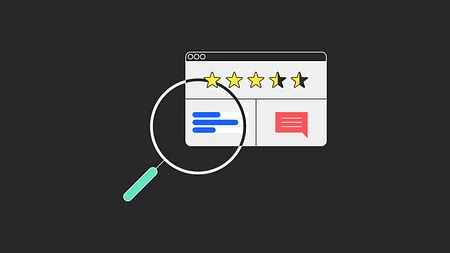Why is competitor research so important?

I think I speak for a lot of people when I say - homework is crap. Evenings after school are for watching Takeshi’s Castle, not studying Pythagoras’ theorem.
Sadly, it is pretty important. Especially when you’re bringing a product to market. Arm yourself with your customers’ Jobs to be Done, brush up on the competition and you won’t go far wrong.
Now let’s dig into some of the key reasons why.
De-risk your launch
At the risk of stating the obvious, reading up on the competition takes the potential sting out of launching your product. For starters, it’s the only way to guarantee it doesn’t already exist. No one wants a repeat of the Finding Nemo/Shark Tale debacle, least of all top brass.
Fintech is rife with copycats. The key differentiator (and often the difference between sink or swim) is knowing your product or feature set better than you know yourself. Are you bringing something totally unique to market or dressing up an old idea in slightly different clothes? It’s a crowded playing field. And with new challengers springing up almost on the daily, it’s only getting harder. Find your niche.
Fintech is rife with copycats. The key differentiator (and often the difference between sink or swim) is knowing your product or feature set better than you know yourself.
Innovate and inspire
There aren’t many bigger reasons for looking into your competitors’ products and feature sets than chasing inspiration. And for the record, I’m not talking about wholesale copying. The best innovators are merely standing on the shoulders of giants. Fintech is no different. Hot pink and mellow yellow debit cards didn’t just appear out of nowhere, people.
The fintech market saturation (great name for a prog-rock band, by the way) has been great for a number of reasons. Among them, brand identity and tone of voice are finally getting their flowers. Some companies are doing it very well (check out these US fintechs nailing the onboarding process) and some, well, could do with heeding my wisdom a little. Customer expectations are changing. Doing your homework is the only way to keep up with the shifting landscape.
Don’t get left behind
With industry regulation hotting up across the board, product teams need to be agile and able to adapt at speed. Spy on your competitors to see how they implement new tech and respond to market changes. Most importantly of all (and, ahem, serially overlooked) is how these changes affect the UX and UI design - a bit of research can put those juicy morsels directly into your hands.
With industry regulation hotting up across the board, product teams need to be agile and able to adapt at speed.
Selling one thing is so last year. Today, companies will bite your hand off for cross-sell and upsell opportunities. The difficulty comes with smoothly integrating these user journeys into your platform. So keep your finger on the pulse. There’s nothing quite like a smooth segue.
Have you heard?
And that’s where 11:FS Pulse comes in.
It’s the answer to your benchmarking headache. With a library of over 4000 user journeys from over 500 brands in more than 50 countries, Pulse is the only tool you need to unlock unrivalled customer insights and get the drop on your competitors.
So get in touch and book a demo. Homework? It’s a piece of cake. No need to serve it to the dog.



